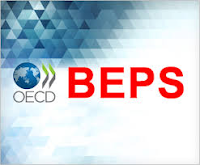On June 1, 2017, the United States District Court for the District of Columbia upheld the Internal Revenue Service’s authority to require the use of a Preparer Tax Identification Number (PTIN), but enjoined the IRS from charging a user fee for the issuance and renewal of PTINs.
As a result of this order, PTIN registration and renewal is currently suspended and tax preparers should be getting a refund check for their previous payments as the court ordered "a full refund of all PTIN fees paid."
The Court did not find that the PTIN requirement for tax preparers was unlawful. It found quite the opposite, saying there is a "rational connection" between the regulations and the stated reasons for the regulations ("effective administration and oversight"). The Court agreed that the IRS could continue to require the use of PTINs for tax preparers.
However, the Court did bar IRS from charging PTIN fees to tax preparers, with Judge Royce C. Lamberth, writing in Adam Steele, et al. v. United States of America, that "all fees that the defendant has charged to class members to issue and renew a PTIN ... are hereby declared unlawful." The Court also ordered that the IRS has to provide "a full refund of all PTIN fees paid."
The Total PTIN Fees to Be Refunded
Could Be More Than $175 Million.
While the IRS may still issue PTINs, the IRS has, for now, shut down the issuance of all PTINs, including renewals. The IRS, working with the Department of Justice, is considering how to proceed.
The case is Adam Steele v. U.S. (USDC for DC Circuit - Case No. 14-cv-1523-RCL).
Need Tax HELP?
Contact the Tax Lawyers at
Marini & Associates, P.A.
for a FREE Tax Consultation Contact US at
or Toll Free at 888-8TaxAid (888 882-9243).
Sources:
Forbes
AccountingToday
Rubin on Tax
 On May 12, 2017 we poste Are You Hiding Assets in the BVI? NOT Anymore Your NOT! where we discussed that The British Virgin Islands’ Government signed new legislation regarding Beneficial Ownership & Technical Protocol with the UK which will come into force in June 2017, which is hoped to improve the exchange of beneficial ownership information between the UK& BVI law enforcement for taxation rulings.
On May 12, 2017 we poste Are You Hiding Assets in the BVI? NOT Anymore Your NOT! where we discussed that The British Virgin Islands’ Government signed new legislation regarding Beneficial Ownership & Technical Protocol with the UK which will come into force in June 2017, which is hoped to improve the exchange of beneficial ownership information between the UK& BVI law enforcement for taxation rulings.










